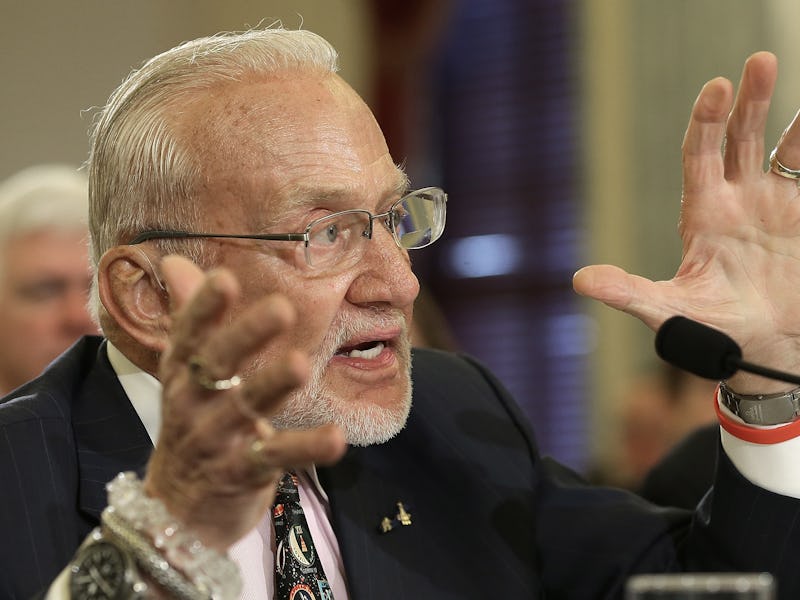Science
Buzz Aldrin Thinks There Should Be a "Landing Age" for Space Explorers
by Neel V. Patel

Astronaut Buzz Aldrin, the second man on the moon and the pilot of the Lunar Module for the 1969 Apollo 11 mission, recently gave a lengthy interview for The Fix and suggested there should perhaps be a minimum landing age implemented for future astronauts traveling to Mars and other worlds.
Aldrin spoke about his childhood, his experiences as an astronaut, and his life after NASA. Over the course of 47 years, Aldrin has seen the ups and downs, major successes and failures, and changes in space exploration in this country and across the globe. But his most interesting insights came in a discussion of humanity’s future travel and exploration of the red planet. Among those takeaways:
- Mental health for astronauts remains as critical as ever: Aldrin told The Fix “The decision to depart the Earth and become a permanent occupant of another planet is momentous. There’s nothing that compares to that challenge. Nothing could be more disruptive than to have the finest of astronauts make a positive decision, and then be on Mars and change their minds.” He thinks it will be necessary to select for potential Mars-bound astronauts at younger ages than NASA typically does right now. “Given the exposure to those conditions, we have to select and perhaps expose potential first-landers between the age of 25 and 35 so that they fully understand the mission,” he said.
- The moon will be critical for helping us prepare for Mars: NASA already knows the moon will be invaluable as a proving grounds for testing and refining the technology we’ll use to establish a Martian colony. The first astronauts to go to Mars will “need to go to the moon orbit and assist in the assembly of modules to be landed while preparing that base on the moon,” said Aldrin. “Now they would know what Mars is going to be like. Hopefully, they understand most of the situations that can arise, and they have experienced that sense of detachment from people back on Earth. They will be the best-trained crew to accomplish the mission. The Moon will be the hub that will help get us to a permanent place on Mars.”
- The first astronauts to Mars will be the most important crew ever assembled: The ones that land on Mars first will also be in charge of applying the finishing touches on the construction and testing of necessary infrastructure and systems designed to keep a permanent outpost on the planet operational. “They will be sent there in the very best way so they can complete the final assembly in 18 months of a permanent base on Mars,” said Aldrin, “and we can see if that is acceptable. If it doesn’t work, they will come back, and we will fix the problems and repeat the effort with a different group of people. If they are successful, they will be the first to land on Mars.”
- Don’t forget about time!: Aldrin emphasized that one of the key components to making a life on Mars work will be “a special calendar for people that would be living on Mars. I want to create a watch that will tell them what time it is there and what time it is back on Earth, in any time zone needed.” He’s currently working on developing such a technology for future astronauts. “We need to have watches for the astronauts that put them in the same time frame as their families. We need their calendars to be in conjunction in terms of the season and what is happening in different places on Earth. That has been a nice challenge for me to think about.”